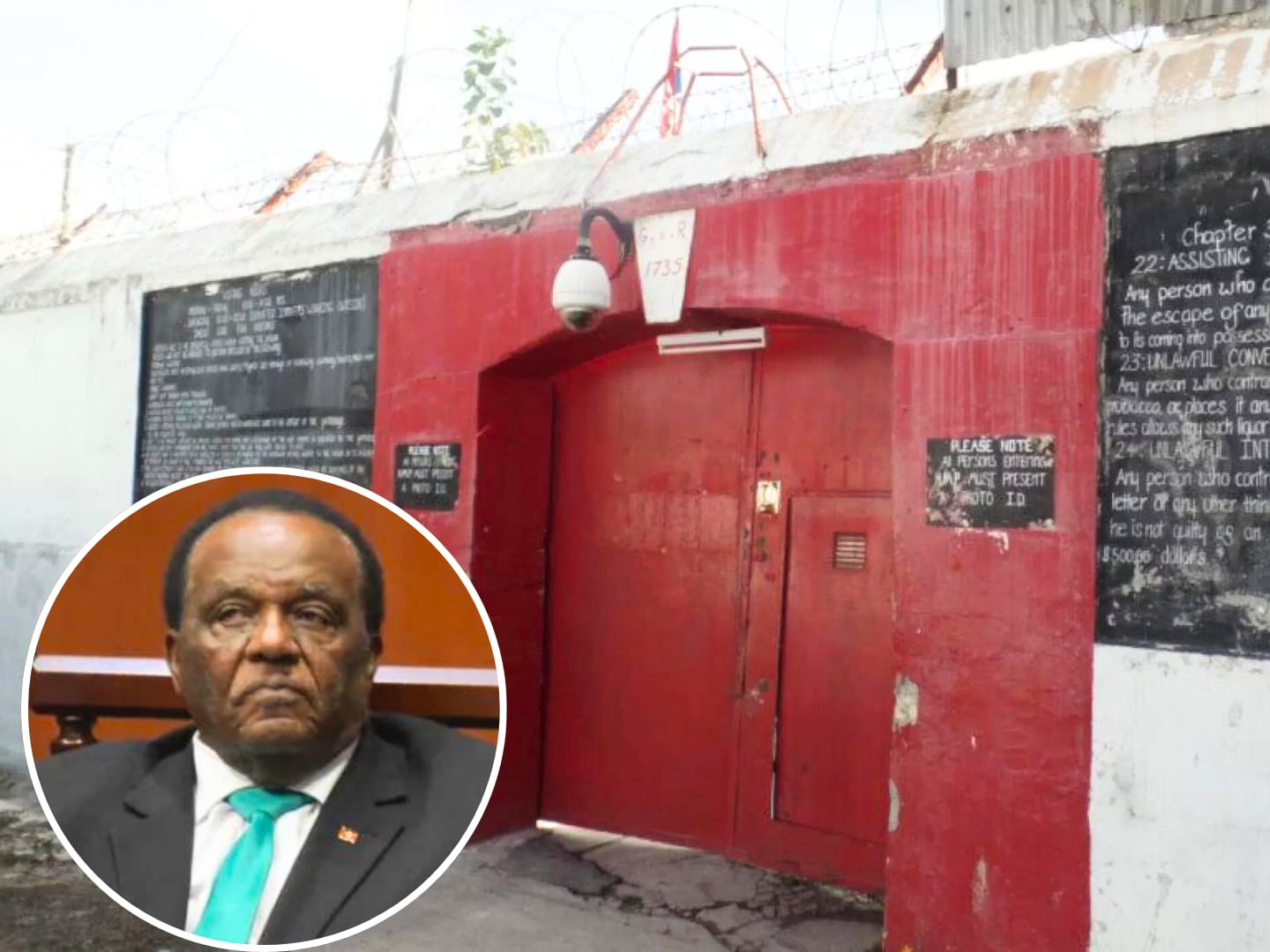
No Progress Without Prison Reform
By Kieron Murdoch | Opinion Contributor
Recidivism is defined as a tendency to relapse into a previous mode of behaviour often despite having faced the negative consequences of that behaviour. In the context of crime it refers to the tendency of those already convicted or punished for crimes, relapsing into criminal behaviour.
Recidivism is a major problem in Antigua and Barbuda according to our public officials. We are not unique though, as recidivism or reoffending is a major problem in most places. Only a few countries have taken the steps needed to tackle it proactively.
In a national address last week, the Prime Minister said he wished to see the problem of dangerous repeat offenders walking about freely addressed by way of the courts. He wished to see fewer known offenders granted bail, and longer sentences meted out to repeat offenders and for serious offences.
While this approach may net some results, we are more concerned with the issue of what we, as a nation, are doing in our prison and with our inmates in order to reduce any inmates likelihood to reoffend.
Though we expect the executive to work with Parliament to begin to address what they may perceive as shortcomings by the judiciary in sentencing and bail practices, we urge both branches of government not forget that they are also responsible for having a well structured, multi-layered approach to reforming criminal behaviour active in our prison, run by highly qualified individuals. If such a programme does not exist, then why?
What we have in the prison now are half measures. There are initiatives run by often committed and passionate individuals to improve literacy, offer tertiary courses, provide access to faith-based activity, and so on. We know as well at one point there was a prison farm programme. All these are positive measures, but they are not enough.
The prison is an abomination that is not fit for purpose. It has been ripped up and rebuilt for years in the most piecemeal and least comprehensive way, never fundamentally addressing its core space and functional inadequacy somehow. It does not provide for a comprehensive and effective programme aimed at rehabilitation of offenders based on the nature of their offence.
How can such a programme even exist when we cannot even provide livable spaces for inmates which would not constitute a human rights violation? Review the articles written about the prison in the last decade.
The recurrent themes are overcrowding, poor ventilation, the absence of running water, infectious diseases, rat infestations, slop pails instead of toilets, pit latrines, flies, stray cats, stifling heat, repeated escapes, poor nutrition, contraband smuggling, inadequate staff, low staff morale – the list can go on.
Added to that, the official culture around the prison is one of non-transparency, often leading to scandals surrounding issues that were hush-hushed for too long before the public knew about them. Rumours of new challenges circulate endlessly before finally being confirmed by public officials.
The families of inmates often have in the past, had to come to the media and raise an alarm before officialdom acknowledges a problem. Lately, the Ombudsman, acting in her capacity as the nation’s human rights watchdog, chastised the government for the numerous human rights violations occurring at the prison including the housing of minors there..
Given the crisis of crime we are observing today and the focus on repeat offenders, is it not past time that we put rehabilitation at the centre of our approach to the penal system? What is the purpose of incarceration?
Punishment of the offender, deterrence to others, and removing dangerous people from society – these tend to be the ideas associated with it. But the simple fact is that prisoners will eventually leave the prison.
Let us put rehabilitation alongside the other objectives of our penal system.
Firstly, we need a purpose built institution or at least one that has adequate space provisions. Plasters and bandages in the form of endless expansion projects and refurbishments at the existing facility have not and will never fix the problem.
If and when we have an adequate space, we should envisage a prison where the system reinforces desirable values. Conflict resolution, aggression management, cooperation with your neighbours, abiding by the rules, demonstrating integrity and honesty – these should be major themes in how prison life is managed.
Time should be managed to promote favourable routines that reinforce good habits. Such habits should include punctuality, cleanliness, being well presented, and doing preparation before a task.
Reward conformity and good behaviour and restrict privileges and freedom for nonconformity. As much as possible, the environment should be free from violence and isolation should not be a first resort as a punishment.
Importantly, we must take the security and safety of prisoners seriously. This means the prison must provide for the security of its residents. Multiple men in tightly cramped spaces creates insecurity. Inmates should have individual cells and bathrooms.
Cleaning these should be a part of their duties. Common areas and spaces should be monitored by cameras and guards at all times. Procedures should exist for inmates to raise an alarm in the case of an assault.
Little is said about the incidence of assault, rape, and other abuses against inmates within our prison, but we would be foolish if we chose to blind ourselves to the reality of the existence of this type of violence within the walls of prisons. It must not be condoned.
Those who commit such violence must be removed from the general population immediately, prosecuted, and serve out their time in isolation. The presence of gangs must also be prevented.
The system must do what it can to emphasise justice. Harm and injustice done by inmates to each other must never go unpunished or disregarded by those in charge of administration. Demonstrating to inmates that when they are wronged, they can get justice from a fair system will serve to bolster their confidence in the concept of justice.
It is important as well for inmates to maintain relationships with loved ones, friends and family. This should be promoted. But if families must endure burdensome procedures, be given the runaround, or conduct interactions in miserable rundown environs or unpleasant spaces, then it will disencourage families from visitation.
It means that the premises and spaces (indoor and outdoor) for visitation must be clean, pleasant and welcoming, and the process for visitation must not be restrictive.
If prisoners become socially isolated from family, their chances of successful reintegration after release will diminish, as they would have fewer strong relationships to rely upon. Additionally, maintaining relationships with family motivates inmates to work towards their release and to make their freedom permanent by not reoffending.
Inmates must have the opportunity to be productive through regular voluntary work. This is not to suggest a draconian labour camp where prisoners suffer the most harsh and cruel conditions while being forced to work painstakingly. No. But, the idea of prisoners sitting idle in their cells or roaming idly in common areas – what behaviours are we reinforcing when we promote that?
Work occupies their time and instils a sense of purpose and value. It diminishes the time they spend being idle and or developing bad social habits while incarcerated. It may provide some skill that would be valuable to them upon release.
They may be rewarded with reducing their time in prison through work. Finally, it could allow them to earn income, which could be used for a variety of other purposes even if they would not be allowed to spend it on themselves.
Envisage a work programme centred around things such as a prison farm or a processing unit. Inmates could rear crops and animals and process them into other products for sale. Envisage work centred around a bakery where inmates produce baked goods.
Envisage workshops where inmates learn and deploy skills in woodwork, electrical work, and machinery repair. These are just ideas, but the point is to provide daily opportunities for valuable work.
In addition, why not give inmates the opportunity, based on behaviour, to participate in work crews that are deployed (with armed supervision) outside the prison? Our gutters constantly need to be cleaned and the bush trimmed.
Public buildings all over this country that need a new coat of paint could become projects for these crews. There are areas of this country that have become illegal dumpsites. Why not offer prisoners the chance to join a crew and work on cleaning these spaces?
And while inmates may not be allowed to spend the money they earn on themselves while in prison, it can nonetheless serve a few purposes. Firstly, they can pay statutory deductions like social security and medical benefits out of it. This benefits the overall system by having more contributors, even if marginally. It also benefits the inmates themselves.
Secondly, a portion can be levied by the government as tax to offset the cost of keeping them incarcerated – which is costly. Work that inmates do on public initiatives, such as cleaning and clearing and work on public buildings, can be treated as a write off of the tax which would otherwise be collected. So, they stand to keep more of their earnings if they work on public projects.
Thirdly, they may choose to direct that the funds be used to pay off debts, cover fines they owe to the state, pay restitution to the victims of their crimes, or go toward their families or their children. It gives someone a sense of purpose if they can still be a contributor to their family or a loved one despite the fact that they are incarcerated.
Fourthly, they may also choose to keep the money as a savings to be paid out to them upon their release, so that when they leave the prison, they are not penniless, but have earnings to jumpstart their lives. Lastly, they may collectively choose to make a positive contribution to society by selecting causes for which their work will raise funds.
What if a non-profit company was established to work in tandem with the prison to market and sell the products they create to the general public, as a means of generating revenue. Give it a name. Call it The Second Chance Foundation Inc., for example.
The non-profit’s role would be to build and maintain relationships in the economy in order to market their services and products, hold funds in trust for the inmates, and make payments as discussed above.
We also need a programme to work with ex-cons for at least three years immediately following their release to monitor and assess their progress and stability in society. Are they employed? Are they living in suitable means? Whose company are they keeping? Do they need some form of coaching or counselling support?
Even if you do not agree with everything suggested here, you would be hard pressed not to acknowledge that our current penal system is abhorrent and counterproductive. Nevertheless, when the prospect of reforms are raised, we cry out in opposition. We say prison should be a harsh place, not a hotel. We seem to take pleasure in the idea that inmates should suffer without hope.
As a society whose population is mostly descended from slaves and whose history tells a tale of human misery brought on by institutionalised dehumanisation, we should be first among nations in recognising and defending the fundamental and inalienable human rights of each person – rights we should acknowledge our prisoners have, despite their transgressions, for the simple fact that they are a human beings.
About the writer:
Kieron Murdoch worked as a journalist and later as a radio presenter in Antigua and Barbuda for eight years, covering politics and governance especially. He is an opinion contributor at antigua.news.
If you have an opinion on the issues raised in this editorial and you would like to submit a response by email to be considered for publication, please email [email protected].






Beautiful editorial. Congrats. You are really talented.
Tear down the current building after building a new one in the country side with adequate land where prisoners can engage in farming, etc. and secure enough not to be a threat to citizens.
Yes,brilliant
I totally agree,but the only risk of that is people wouldn’t be afraid of going jail anymore
There should be two different prisons for more severe crimes than the other also
Right on soo many points! Antigua is a joke at this point and we need more persons to bring awareness. It does not matter what crime they did, prison is a place meant for rehabilitation, not human torture. Someone said tearing down the present building and rebuilding a new one in the country side where is is spacious and promote more recreation, and rehabilitation, and I totally agree with that. It’s almost as if we have to go on strike or protest or even something serious to happen just for the Government to listen to our pleads.
I totally agree with you.